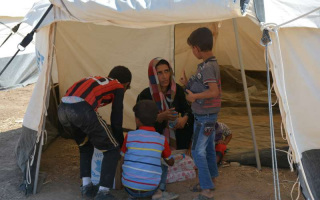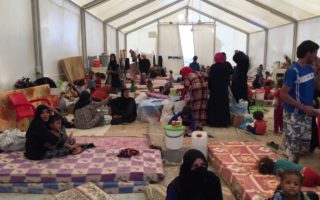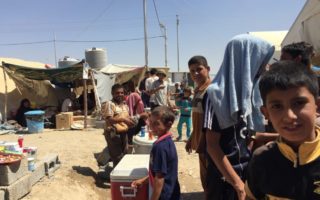Speaking with families who fled in fear from the Mosul assault, UN refugee chief Filippo Grandi stresses the need to protect civilians and prevent further displacement.
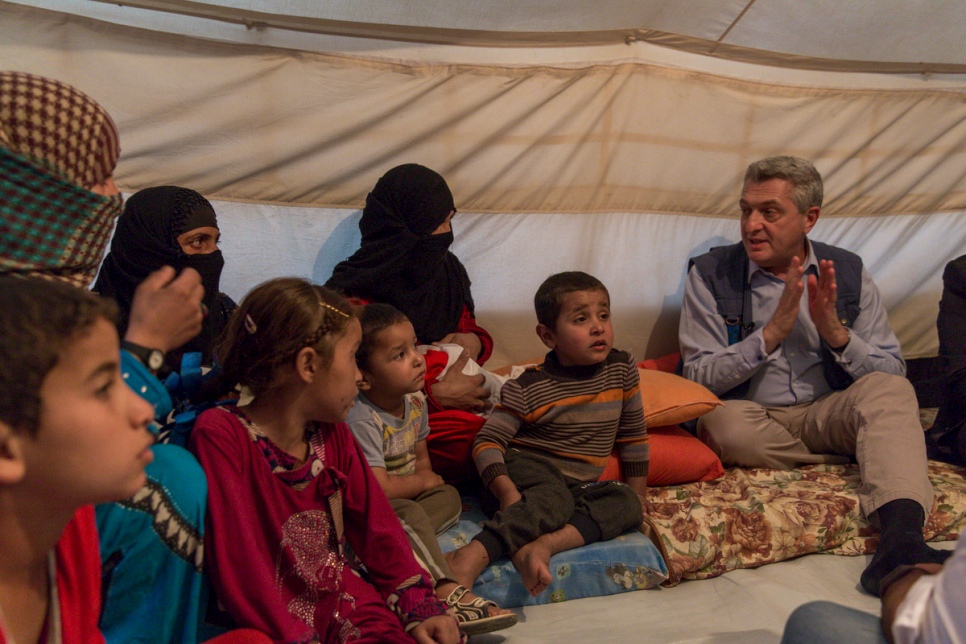
United Nations High Commissioner for Refugees Filippo Grandi speaks with a displaced family in their tent at Debaga camp in the Kurdistan Region of Iraq. © UNHCR/Ivor Prickett
DEBAGA CAMP 2, Kurdistan Region of Iraq – After fleeing her hometown near Mosul, which came under the control of extremists for more than 16 months, Rusul spoke of the fear and destruction she and other displaced Iraqis left behind.
“There is still fear,” the young Iraqi woman said. “Our houses were burned and destroyed. Thank God, life here is better. They’ve been very good to us.”
She was speaking to UN High Commissioner for Refugees Filippo Grandi in a tent at this camp complex for displaced people in the Kurdistan Region of Iraq, as a small baby slept in the arms of his mother Maali.
Grandi discovered the baby’s name is Ahmed and heard the story of his turbulent first days.
“He was just five days old when we left,” Maali said. “We still haven’t got the birth certificate.”
The family delayed their flight until he was born.
“There was shelling,” she said. “When we left I couldn’t take all our things. We just started moving.”
Grandi was visiting Debaga Camp 2 in the midst of a major military offensive by Iraqi and Kurdish forces to retake the city of Mosul. He stressed that the highest priority must still be paid to protecting civilians.
Such a policy would help prevent a new flood of displaced people from Mosul and its surrounding areas in the conflict-torn region of northern Iraq.
“The more civilians will feel protected inside Mosul, the less they will be displaced,” Grandi said during the visit. “And for those who feel they have to go because it is dangerous, they have to be treated with dignity, and in full respect of their rights.”
“The more civilians will feel protected inside Mosul, the less they will be displaced.”
The High Commissioner is on a four-day visit to Iraq during which he has repeatedly highlighted the need to safeguard civilians as the Iraqi military battles to retake the country’s second city, which was captured by militants in June 2014.
The grave dangers faced by thousands of civilians fleeing Mosul and its surrounding villages were echoed by other recently-arrived displaced people at the vast Debaga complex, which is just 40 kilometres from the front line.
“We had to leave, we just wanted to save our lives,” Mnifah said. She is a woman who fled Hawiga just last week. Together, she said, three families paid a total of US$5,600 to a ‘guide’ to show them the way.
They walked for seven hours along roads that had been strewn with mines and improvised explosive devices.
The complex of three camp sites at Debaga now houses almost 30,000 people in rows and rows of UN Refugee Agency tents on a flat, dusty plain under a hot sun. Temperatures have begun to plummet at night.
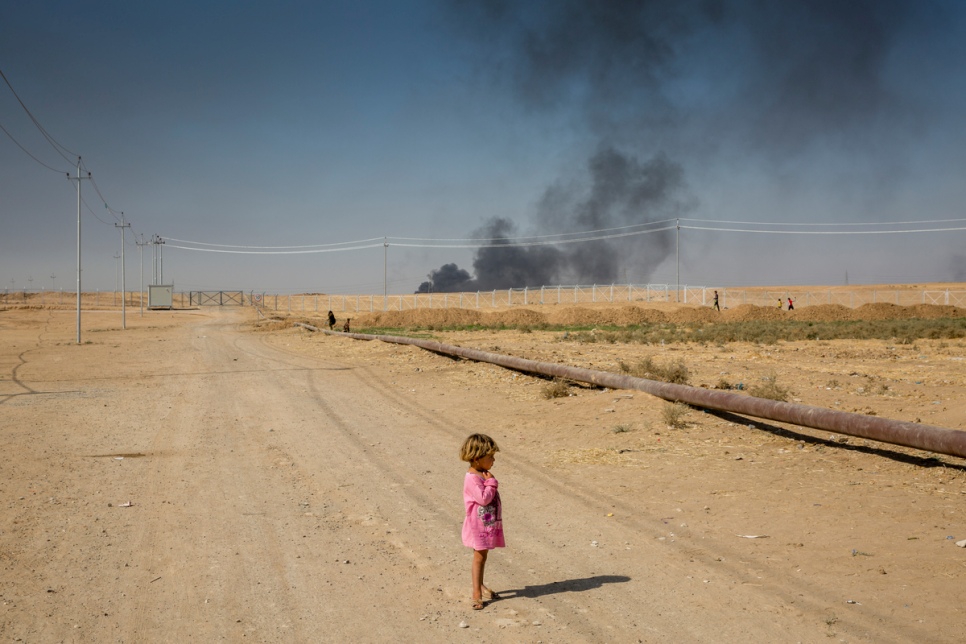
A displaced child stands on the edge of Debaga camp in the Kurdistan Region of Iraq. The camp lies just 40 kilometres from the front line in the military push to retake Mosul. © UNHCR/Ivor Prickett
UNHCR has five camps open and ready to shelter 45,000 people in the region. It hopes to have a total of 11 camps ready in the coming weeks, camps which could shelter 120,000 people.
Speaking during his visit to Iraq, which also included high level meetings in Baghdad and Erbil – including Iraqi Prime Minister Haider Al-Abadi – Grandi stressed that UNHCR and its partners must think and plan beyond the short-term in this crisis.
“UNHCR and many partners are focusing on building up our stocks of tents, shelter material and relief items to help people in the initial phase of what happens, but also through the winter. So we have to make sure they get assistance for the winter.”
The High Commissioner stressed more than once that the key now was to agree with the regional governmental authorities on sites that could house those uprooted by the offensive.
“Sites have to be safe, meaning not close to the fighting,” Grandi said. “And sites have cannot be contaminated, that is, without mines and other military ordnance.”



